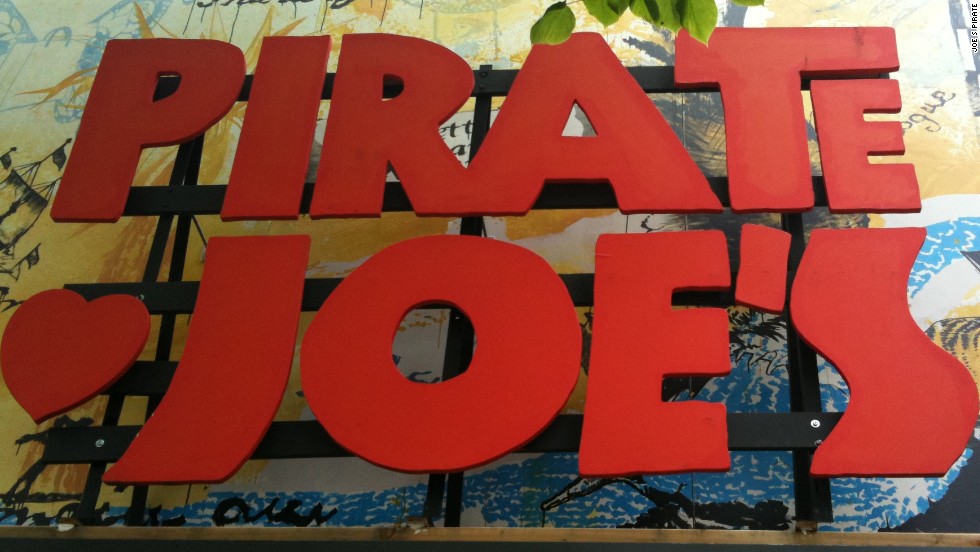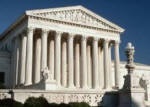Newsletter Issue 91 - September 2016
In this issue:
Copyrights to music
Trader Joe's and trademarks
Does the Supreme Court change the law?
Ask Dr. Copyright ...
Dear Doc,
It seems every day that I read about another federal law suit
claiming that some musical "artist" of whom I have never heard,
claims that another musical "artist" (of whom I may have heard)
stole his/her/its music and infringed copyright. Is it just me, or
are these claims becoming more frequent? What gives?
Signed,
Fed Up
Dear FU:
You're right! The "Doc" has, in all his years, never seen so many
copyright infringement law suits over music. The latest seems to be
the suit against "Demi Lovato" by "Sleigh Bells" over their song
"Infinity Guitars" and her song "Stars". The complaint in the law
suit sums it all up: "A comparison of the two songs reveals that, at
the very least, the combination of the hand claps and bass drum,
structured as 3 quarter beats and a rest, with the bass drum
providing a counter-rhythm to the hand claps, is at least
substantially similar in both works..." So there, you have it. No
similar melody (or what the "Doc" always thought was the important
part of the song - the part you can whistle).
Now, the "Doc" has friends who are musicologists (doesn't
everyone?), and they will tell you that every element of music
(rhythm, melody, harmony, dynamics, instrumentation, etc.)
contributes to the overall artistic impression of a composition or
arrangement. And they are right! But until recently, our copyright
laws gave much more weight to the commonly recognizable melodic
elements, and much less to the overall style, often pushing style
into the background, much like a common plot device in a play (boy
meets girl, boy loses girl, boy gets girl) which is not protectable,
in and of itself.
This style issue began to change (much like most of pop music, which
seems to have less melody every day, but that may be just the Doc
getting older and crankier), and the case between the
heirs of Marvin Gaye and Farrell Williams/Robin Thicke over the
song "Blurred Lines" truly blurred the lines about what may be
protected by copyright in music. There, the judge decided that
because a later song had a style that reminded people of an earlier
one, but did not share any common musical elements (melody, rhythm,
harmony), it could still be an infringement under the law.
#OpenFloodgates, as the kids would say.
So... is "Stars" a copy of "Infinity Guitars"? You, the jury, now
have the option to decide.
Good luck.
Think your little ditty is being ripped off? Have another
intellectual property question? Contact the lawyers at LW&H. They'll
help you protect what's yours!
Until next month... Keep your feet on the ground and your eyes on
the "Stars" (or the "Infinity Guitars")...
The "Doc"
Trader Joe's and the Long-Arm Reach of the Lanham Act
If you thought that you were immune from prosecution for infringing
a U.S. registered trademark in a foreign country, be forewarned.
In late 2011, Michael Norman Hallatt, a Canadian citizen and U.S. Lawful Permanent Resident, began visiting a Bellingham, Washington Trader Joe's ("TJ's") store several times a week to buy large quantities of Trader Joe's products. This caught the eye of TJ's employees so Hallatt was questioned about his purchases. Hallatt admitted to taking TJ's products to Canada for resale to Canadian customers. TJ's later learned that Hallatt opened a store in Canada, which he named "Pirate Joe's" where he resold marked-up TJ's goods purchased in Washington state. Perhaps, believing that he was immune to suit from TJ's for trademark infringement in Canada, he advertised his products with TJ's trademarks and published a website displaying "Pirate Joe's" using a font similar to that used in TJ's trademarks. Hallatt's chutzpah didn't stop there. TJ's demanded that Hallatt stop reselling TJ's products and stopped serving him at the Bellingham store. Undeterred, Hallatt resorted to disguises and patronizing other TJ's stores in Seattle, Portland and California, where he would not be recognized. Hallatt also paid others to purchase TJ's products on his behalf. Clearly, this was a profitable business!
TJ's ran out of patience and sued Hallatt for trademark infringement and unfair competition under the Lanham Act (U.S. Trademark Act) and Washington state law. The district court dismissed the Lanham Act claims for lack of subject-matter jurisdiction because Hallatt's allegedly infringing activity took place in Canada. The district court dismissed Trader Joe's' state law claims for similar reasons. TJ's appealed to the United States Court Of Appeals for The Ninth Circuit on the question of the extraterritorial reach of the Lanham Act. In other words, TJ's asked the court to determine whether the trademark act applies to infringing conduct that does not occur in the United States?
The court's short answer is, yes, it does but only if the plaintiff can establish a connection between the infringing activity and U.S. commerce. TJ's, which recognized that simply reselling branded products is not illegal under the Act, alleged that Hallatt violated the act "by transporting and selling Trader Joe's goods without using proper quality control measures or established product recall practices." The court agreed such conduct had a direct effect upon U.S. commerce and also concluded that "Hallatt's alleged attempt to pass as an authorized Trader Joe's retailer could ... harm Trader Joe's' domestic reputation and diminish the value of its American-held marks."
All this my sound very hyper technical but the bottom line is that making a buck on the back of a famous trademark may lead to serious consequences even if you're doing business in a foreign country.
When the Supreme Court Changes the law, does the law really
change?
When the Supremes reverse the decision of a lower court, the law
that governs the conduct of you, me, and everyone else in the
country on the day after the decision is different than it was on
the day before the decision. So the Supreme Court changes the law,
right?
Not so fast.
First, some background. For most of the 20th century, Encyclopedia
Britannica was the authoritive reference for, well, just about
everything. Then the Internet happened and the bottom dropped out of
the encyclopedia market. You can't even buy an English language
print version anymore. Encyclopedia Britannica saw the writing on
the wall years ago and developed a digital encyclopedia and a new
multimedia database search system to implement the new encyclopedia.
Encyclopedia Britannica hired the giant Washington law firm of
Dickstein Shapiro to file patent applications for its new
technology. In 1993, Dickstein Shapiro filed an application that
contained a crucial error, which rendered the resulting patents
invalid and unenforceable.
Oops.
That smells like legal malpractice, folks. But nobody knew it at the
time.
In 2006 Encyclopedia Britannica sued several defendants for patent
infringement. Dickstein Shapiro's error was discovered and
Encyclopedia Britannica lost the infringement litigation.
Encyclopedia Britannica then sued Dickstein Shapiro for legal
malpractice. To succeed in the patent malpractice case, Encyclopedia
Britannica had to show that absent the malpractice, Encyclopedia
Britannica would have won the infringement litigation.
In the meantime, the Supreme Court decided the 2014 case of
Alice v CLS Bank that killed most software and computer patents.
In 2015, the
malpractice trial court found that Encyclopedia Britannica's
1993 computer and software inventions were unpatentable under the
Supreme Court's Alice decision. Encyclopedia Britannica's patents
would have been unenforceable, had the law been interpreted
correctly in 2006, and Encyclopedia Britannica was not able to show
that it would have won the infringement litigation. The result is
that Encyclopedia Britannica lost the malpractice lawsuit based on a
Supreme Court decision that occurred 21 years AFTER the malpractice
occurred.
To answer our original question: when the Supreme Court decides a
case, the law does not change. The Supreme Court merely recognizes
what the law was all along, even if everyone else followed the
incorrect interpretation of the law for decades.
By the way, Dickstein Shapiro collapsed and went out of business in
February, 2016.

